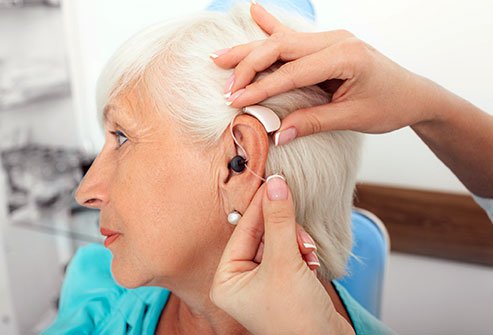
When a person has a condition like Meniere's Disease, they may have a very difficult time sleeping and having normal activities
This condition is caused by an abnormal buildup of the fluid in the inner ear called the cerumen.
Vertigo – This is the term for dizziness. There may also be a pounding or buzzing sound in the ear. Diagnosis of Meniere's Disease requires: two episodes of dizziness, each lasting between six and ten minutes but never longer than 24 hours.
Meniere's disease is characterized by symptoms that vary from person to person. Symptoms include persistent or intermittent ear filling or pressure, whistling, ringing, clicking, popping, persistent or intermittent ear pain, tinnitus sensation, and sometimes hearing loss. It can also cause headaches.
Your doctor may need a hearing test to confirm the diagnosis of this disorder. He may ask you to wear a hearing aid in one ear for a week to confirm the diagnosis. The doctor will conduct a physical examination and conduct a physical examination. Diagnosis of Meniere's disease requires: hearing loss confirmed by audiogram.
Dizziness is a feeling of dizziness. Your doctor may ask you to wear a device called a doppler device to determine if your dizziness is due to dizziness or hearing loss. For the diagnosis of Meniere's disease, it is necessary: dizziness, confirmed by an audiogram.
Dizziness is usually caused by an increase in pressure on the inner ear due to a weakening of the vestibular apparatus. In some people dizziness occurs when the ear canal is blocked. To diagnose Meniere's disease, it is necessary: dizziness, confirmed by an audiogram.
A doctor may recommend otoplasty procedure to increase the size of the inner ear to prevent a possible blockage. Another procedure is the surgical removal of the middle ear. Surgery to increase the size of the ear may be required when the pressure or decrease the size of the inner ear is causing the symptoms. Symptoms may be relieved with the use of decongestants or anticholinergic drugs.
If surgery isn't necessary, another option is to treat the underlying condition causing the symptoms of Meniere's Disease. For example, a doctor may recommend the use of a decongestant to relieve pain and help ease the pressure in the ears. Other treatment options are physical therapy.
Physical Therapy – A doctor may suggest physical therapy for the purpose of relaxing the muscles in the ear. This will help to relieve some of the symptoms of Meniere's Disease. Physical therapy can also help to strengthen the muscles in the ear.
The most common cause of vertigo in children and adults is ear infections. A doctor may prescribe antibiotics to prevent infections that cause vertigo. To relieve pain caused by vertigo, your doctor may recommend the use of decongestants.
Symptoms will vary depending on the severity of the condition. Symptoms include: headache, loss of hearing, and vertigo. Diagnosis of Meniere's Disease requires: vertigo verified through audiograms.
Vertigo – A doctor may recommend the use of a Doppler or audiogram to confirm the diagnosis
When there is no pain or loss of hearing, there may not be a need to run an audiogram to confirm Meniere's Disease. However, vertigo may be necessary in severe cases because of the risk of an underlying infection.
Symptoms of Meniere's Disease may include: headaches, difficulty in swallowing, ear pain, dizziness, and loss of hearing. A doctor may also prescribe medications to reduce the symptoms.
Surgery to improve the size of the ear, or surgery to treat the condition itself, is another option in medical treatment for Meniere's Disease. If the doctor decides that surgery is necessary, the surgery is performed to treat the condition, not to remove the symptoms. The surgery may remove some or all of the inner ear, which is known as "the middle ear." This is important because the middle ear is responsible for protecting the inner ear from damage caused by loud noises.
A hearing aid may be used if the inner ear does not work. A hearing aid has the same purpose of protecting the hearing mechanism from damage caused by sound. However, a hearing aid doesn't help to correct the balance problem caused by the condition.
Because a hearing aid doesn't correct the balance problem, a hearing aid can cause some of the symptoms of Meniere's Disease such as dizziness and vertigo. In addition, a hearing aid may make the situation worse. Therefore, patients must follow the instructions provided by their doctors on using a hearing aid to avoid causing further complications.
Leave a Reply